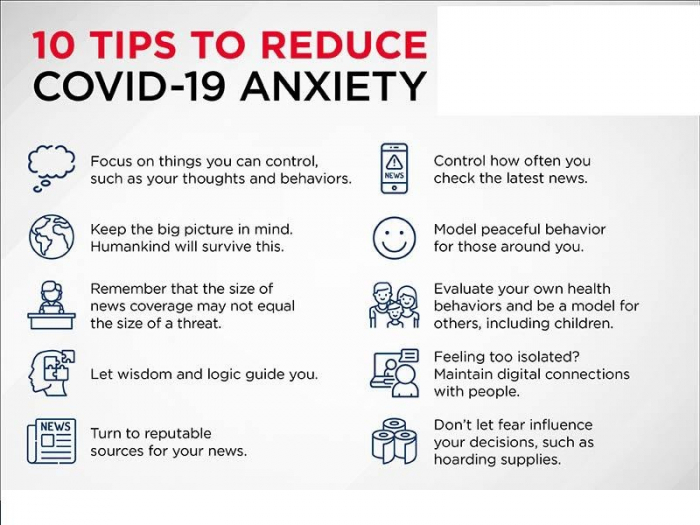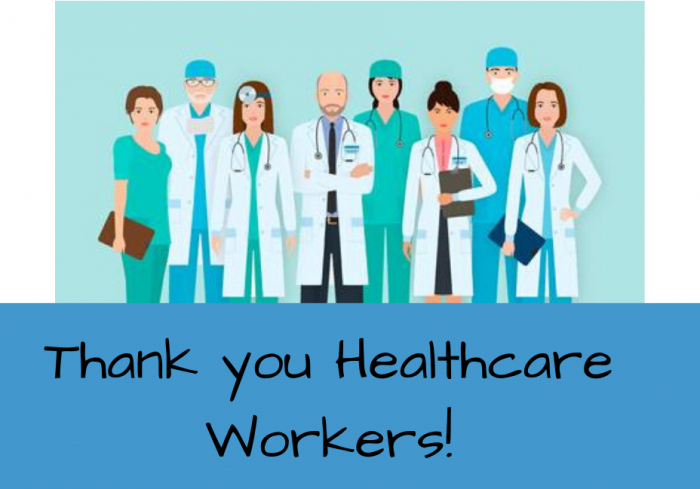By Ms. Mehreen Gul, Director,
Center for Global & Strategic Studies (CGSS), Islamabad
Healthcare Professionals are being exposed to psychological stress due to this pernicious pandemic. In a survey of more than 1200 healthcare providers in China, about 50% reported at least mild depression; 14% of physicians and nearly 16% of nurses reported moderate or severe depressive symptoms and about 34% reported insomnia.
In recent research, a large section of healthcare providers treating patients exposed to COVID-19 have symptoms of mental stress including depression, anxiety, and insomnia.
Those at greatest risk for depression and anxiety symptoms included women, those with intermediate seniority roles (compared with those with junior roles), and those at the center of the epidemic in Wuhan.
Psychological distress is due to the increasing contagiousness of the virus. They are facing personal and professional challenges.
Need for Swift Action
The researchers have conducted a cross-sectional survey of 1257 healthcare workers in 34 hospitals across China, including Wuhan epicenter of the outbreak.
Among survey respondents, 61% were nurses, 39% were physicians, 61% worked in hospitals in Wuhan and 42% were frontline healthcare workers engaged in the direct diagnosis, treatment, and care of patients with COVID-19.
The survey took place between January 29 and February 3rd, a period when the total confirmed cases of COVID-19 in China topped 10,000. Symptoms were assessed using the Chinese versions of the 9-item Patient Health Questionnaire, the 7-item Generalized Anxiety Disorder scale, the 7-item Insomnia Severity Index, and the 22-item Impact of Event Scale-Revised.
45% reported symptoms of anxiety, 34% reported symptoms of insomnia, and about 72% reported psychological distress. Nurses, women, frontline healthcare workers and those working in Wuhan had reported more severe degrees of all measurements of mental health symptoms compared with other healthcare workers.
Protecting healthcare workers is an indispensable component of public health measures and for addressing the COVID-19 epidemic. Special interventions to promote mental well-being in health care workers who got exposed to COVID-19 need to be immediately implemented, with women, nurses, and frontline workers requiring particularly focused attention.
Significant Findings
The rates of anxiety and depression revealed by the survey are "striking," Roy Perlis, MD, associate editor of JAMA Network Open, writes in an accompanying editorial.
Perlis, from Massachusetts General Hospital in Boston, notes that while the peak of the COVID-19 epidemic remains to be seen, it will ultimately subside." However, the results also provide a reminder of the toll that will likely linger: the consequences of chronic stress, including major depression and anxiety disorders. Just as the world has joined efforts to manage COVID-19 infection, it will be critical not to neglect the mental health consequences of the fight against the pandemic. “There are "actionable and feasible" things healthcare providers can do to balance some of the stress they may be experiencing in their day-to-day encounters with patients.
It's important to acknowledge that it is normal to be feeling anxious and worried about this situation. In the case of coronavirus, some amount of anxiety helps remind us to take precautions and to protect ourselves, healthcare providers are probably experiencing heightened levels of anxiety right now that aren't helpful. But, it's important to practice acceptance of whatever negative emotions they are feeling in the moment and remember that anxiety will dissipate with time
Self Care Measures
At this time of danger, agony, and grief where human beings are in isolation, our healthcare professional heroes are fighting with valor and audacity knowing that the transmission risk is higher, healthcare providers to be proactive and take steps to guard against burnout.

Try taking some short breaks during each day. Being outside and connecting with nature for 20 to 30 minutes, but even just 10 minutes has been shown to reduce cortisol levels the stress hormone. Practicing gratitude has also been shown to have positive effects on physical and emotional well-being. The hardest thing for healthcare professionals is to ask and seek help for a psychological disturbance. In fact, to seek help is like a taboo” to break the stigma mental healthcare providers are also working with full devotion to helping those who are playing their part on the frontline. Commit that you will come up with three things every day that you are grateful for (study shows). Tying it to something you do every day, like brushing your teeth or brewing your coffee, will make you more likely to stick to it. Also, daily mini self-check-ins are important.
Take several deep breaths and check-in on how you are feeling. Research has shown that just by labeling what you are feeling that I am stressed, my thoughts are raising, my stomach is in knots, you raise the intensity of that emotion.
Finally and perhaps most importantly, frontline providers not to hesitate to get professional help. People typically wait until their anxiety and depressive symptoms get severe before they reach out.
To Focus On Success Stories
To focus more on optimism can eliminate the risk of psychological disorders. Cases are being shrunk gradually. Researches are being conducted and in the process of findings. Possible treatments for this deadly virus are introduced so far. Measures are being introduced to lessen the risk. And the good news is “no more cases in Wuhan” remember it was the epicenter. It took less than 2.5 months and Wuhan is clear of COVID-19.
The Republic of Korea, Japan and Singapore have adopted early precautionary measures e.g. early detection, self-isolation, social distancing, and other related measures. According to the China Center for Disease Control and Prevention, no child under the age of 10 has died. Recovered patients forms COVID-19 have joined volunteer organizations to combat this pandemic.
The Response of a Society
The well-being of our health professionals and all who are working on frontlines are highly demanded. The entire society is ready to support our heroes vigilantly.
We can help healthcare professionals with such response:
- We need to show solidarity, resilience, and optimism.
- The dire need of this time is to follow the instructions given by the health care providers, scientists, and researchers.
- The moratorium of convening until the situation is controllable.
- To develop an encouraging culture we need a combined effort.
- Breaking the stigma that health professionals are apathetic.
- To write healthy and supportive blogs.
- Disturbed mental health shouldn’t be associated with a failure.
- To create a better environment for our heroes.
- Avoid propagation of falsified information about the virus and disease.
-By following the WHO guidelines for mental health in emergencies could be helpful.
All these instructions will automatically help the health practitioners to overcome their burnouts and exhaustion. Being a responsible citizen and an important part of society we can step into the vacuum of the current health crisis.
Measures by Concerned Authorities
Health organizations, government, policymakers, non-governmental organizations, media, scholars, and students can play a powerful role in this pandemic.
The primary responsibility comes from the government to provide practical actions to these dedicated healthcare providers and fighters, by providing those weapons (PPE and medical machinery) to win the battle. The best rapid transformation of our health system is required, especially, concerning the mental well-being of the doctors and our warriors, a well-organized structure and plan should be implemented.
However, as we all know that Pakistan is an underdeveloped country with multiple challenges. As our government is taking efficient actions so the psychological needs are also imperative. To undermine health crises health organizations need to draft a charter.
Surveillance of the healthcare facilities, the security of the staff in hospitals in terms of providing disinfectant scrubs, medical kits and high potential masks (PPE) and to overlook the personal security, to boost the communication system for and among the emergency staff.
The fear of insecurity is a risk and can affect the performance of our heroes. Regular reviews of their performance are effective motivation. The availability of the support system is another exercise to eliminate stress. Allocate break rooms and space to rest and meals will ensure their healthy performance. Training of the junior staff to avoid hazards is also essential.
CONCLUSION
As results are showing the increasing ratio of the psychological distress of the health practitioners in this pernicious pandemic strong support system is needed to help them. Every segment of society can play an integral part. By providing the best facilities and proper surveillance can shrink the risk of their mental disturbance. Healthcare providers are the warriors of this deadly battle. The only worry is the contagiousness of COVID-19, following the WHO guidelines for COVID-19 could be defeated and our heroes can get relief from anxiety, depression, and insomnia.
More about: #Healthcareworkers
















































